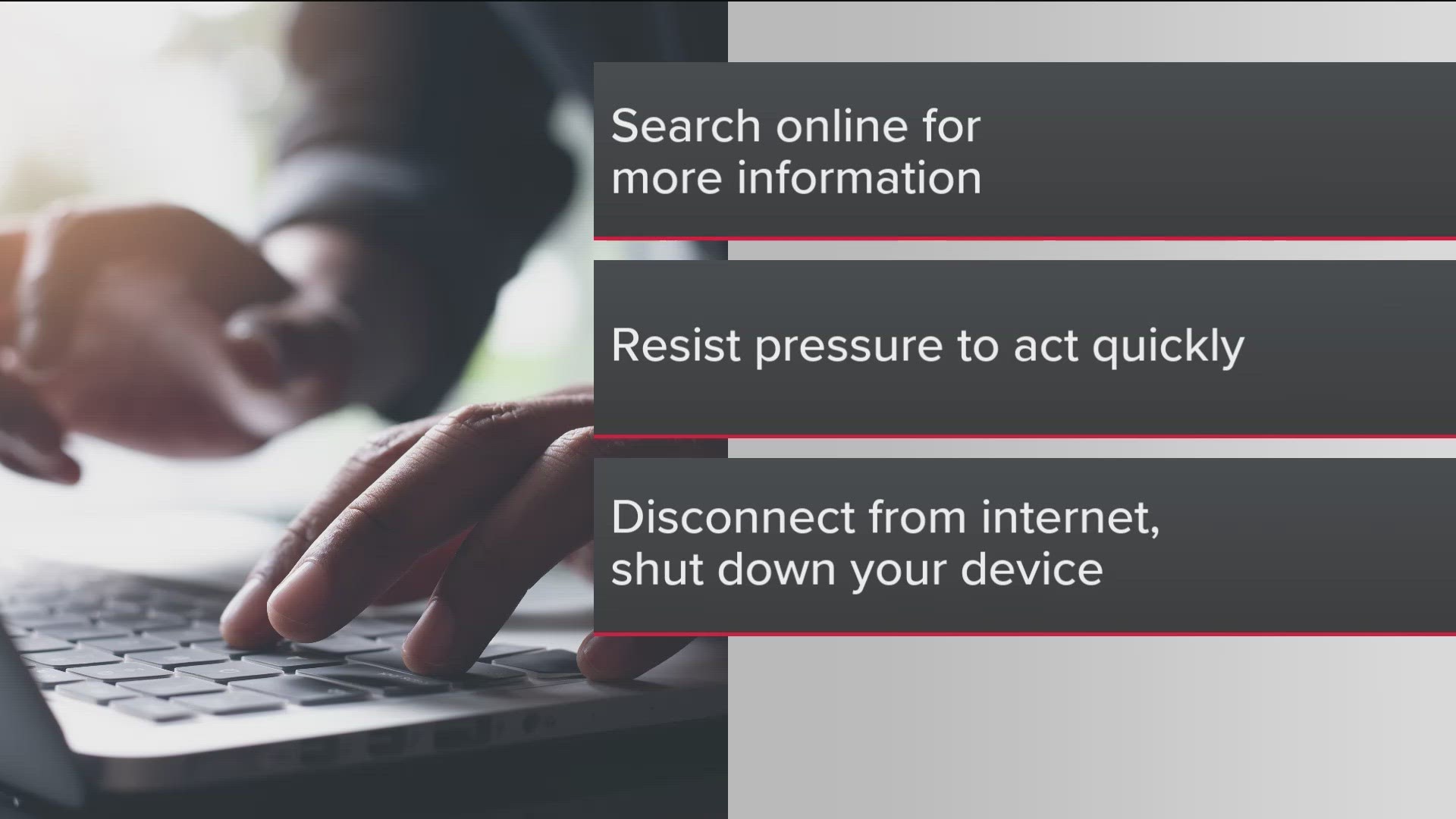ATLANTA — The Federal Bureau of Investigation is warning that elder fraud is on the rise and is urging families to take precautions.
In the FBI's latest alert, it said that seniors are often targeted "because they tend to be trusting and polite," according to a release, adding that the elderly tend to have financial savings, own a home and have good credit -- which makes them attractive to scammers.
About a sixth of Georgia's population is 65 years old or older, according to Census Bureau data. The FBI says the nation's aging senior population is racking up more than $3 billion in losses annually due to elder fraud.
Brian Levy, director of marketing and business development for Cambridge Caregivers and Manchester Care Homes, said the cost of these scams will climb.
"I'm surprised it's not higher," he said. "It is so prevalent and they're getting more and more sophisticated each and every day."
The FBI said the top three schemes involve scammers acting as fake relatives or officials. An explanation can be found below.
Common elder fraud schemes
Romance scam: Fraudsters pose as interested romantic partners on social media or dating websites and prey on lonely people.
Tech support scam: Schemers pretend to be technical support representatives and offer to fix a non-existent computer or phone issue. The schemers get remote access to the victims' devices and sensitive information.
Grandparent scam: Scammers pose as a relative, usually a child or grandchild, claiming to be in immediate financial need.
Levy explained that the scammers are actually recording voices to manipulate people and trick them into falling for the fake persona.
"With the elderly, especially with dementia, they get very paranoid and they don't want to tell their family they got scammed because they don't want their independence taken away," Levy said.
The FBI backed Levy's claim, adding that seniors are often less including to report fraud because they don't know how or may be too ashamed to after being scammed. It's up to loved ones to help give them confidence and offer support in navigating the situation.
Levy said if an elderly family member has been scammed, the Federal Deposit Insurance Corporation (FDIC) could help get some of the money back -- but it could take months or even years to recover the funds.
He said to combat scams -- the key is to educate and focus on prevention. This doesn't mean just watching bank accounts but being wary of what information their elderly loved ones are sharing and when.
"Please be aware of your elders that are online, whether on your computer and know what they're doing," Levy said. "It is very important to be vigilant. Scams, like I said, are becoming more and more serious. It is our responsibility and duty to protect (our) elder community."
The FBI has broken down data to explain just how such scams impact seniors. Those statistics can be found here. For resources on how to protect yourself and loved ones, visit the FBI's dedicated website.
How to report a scam
If you believe you or someone you know may have been a victim of elder fraud, contact your local FBI field office or submit a tip online. You can also file a complaint with the FBI’s Internet Crime Complaint Center at ic3.gov.
When reporting a scam—regardless of dollar amount—include as many of the following details as possible:
- Names of the scammer and/or company
- Dates of contact
- Methods of communication
- Phone numbers, email addresses, mailing addresses, and websites used by the perpetrator
- Methods of payment
- Where you sent funds, including wire transfers and prepaid cards (provide financial institution names, account names, and account numbers)
- Descriptions of your interactions with the scammer and the instructions you were given
Whenever possible, you should keep original documentation, emails, faxes, and logs of communications.

